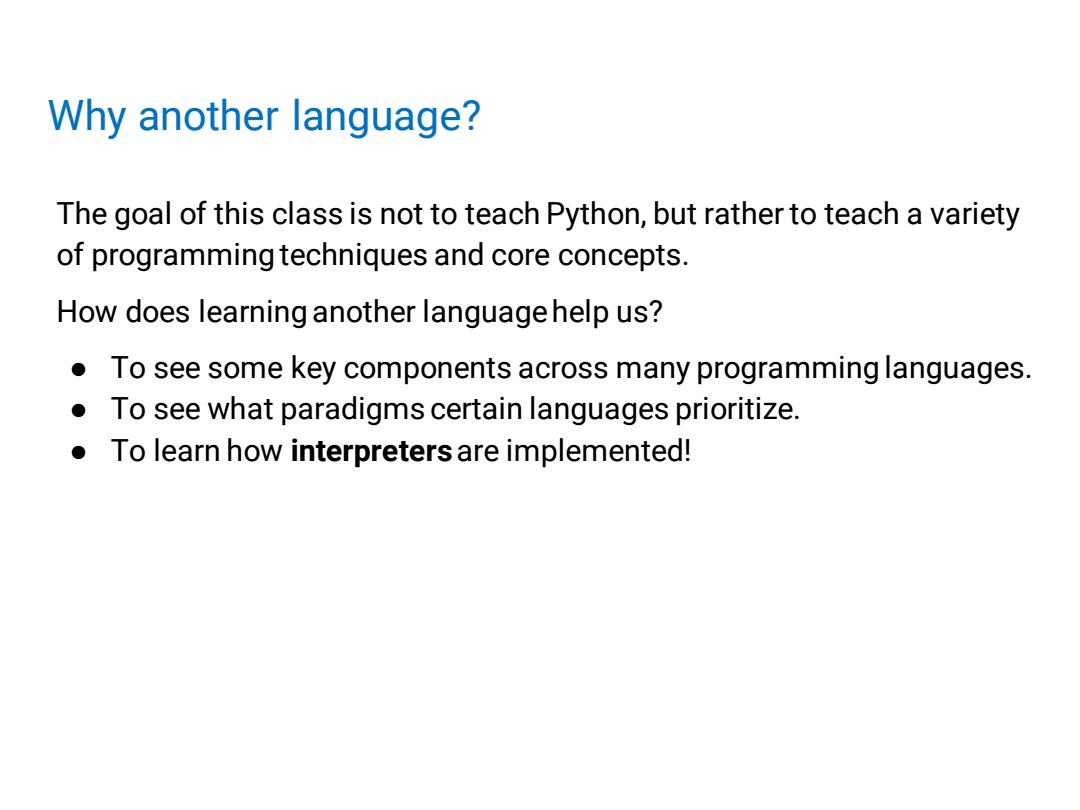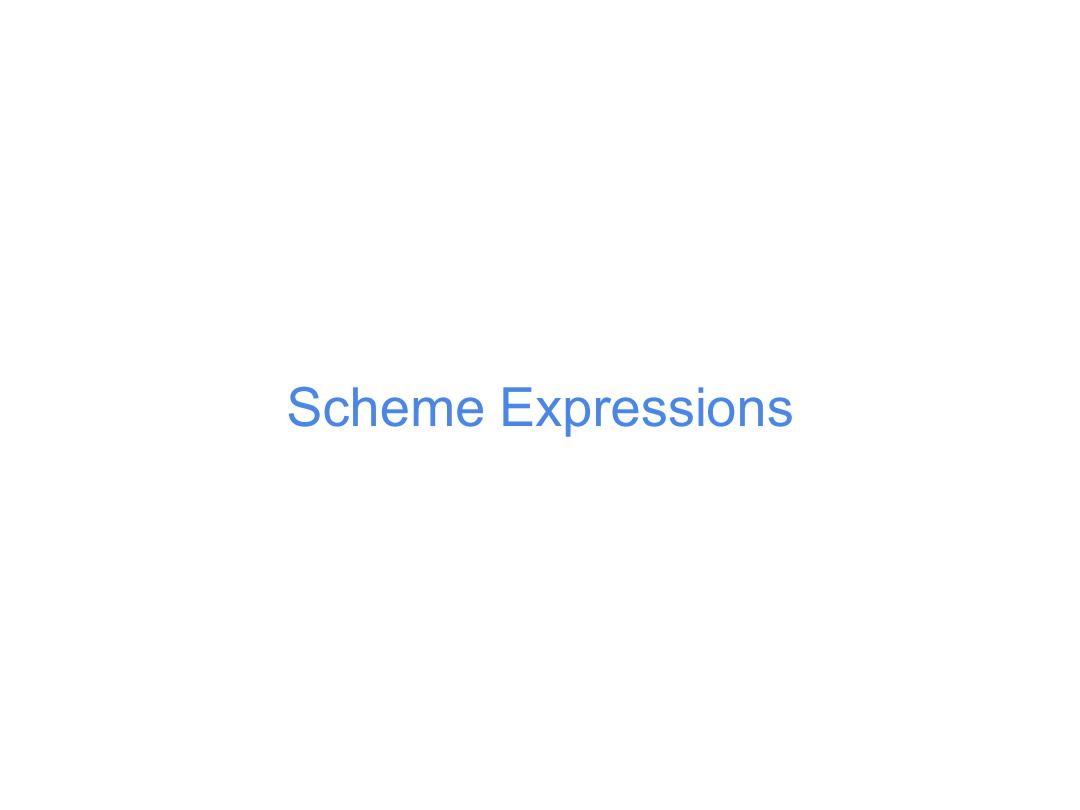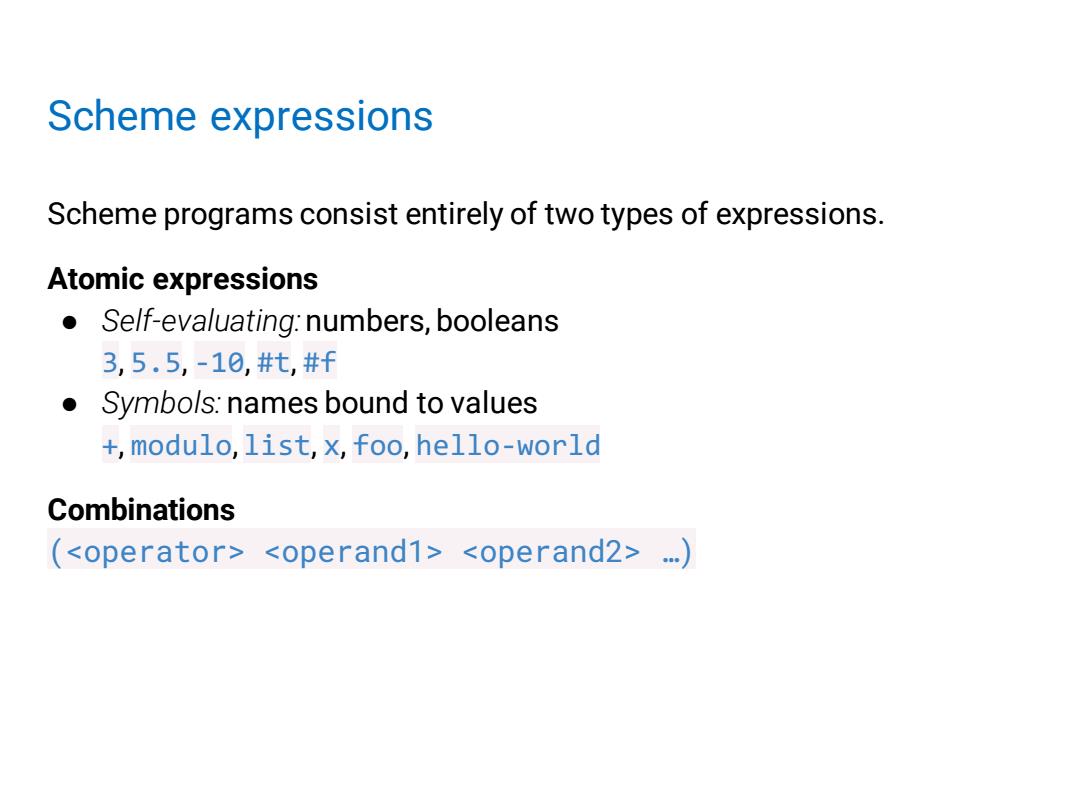
Lecture 19 -Scheme
Lecture 19 - Scheme

Scheme Scheme is a dialect of Lisp. It uses a lot of parentheses. LISP IS OVER HALFA I WONDER IF THE CYCLES THESE ARE YOUR CENTURY OLD AND IT WILL CONTINUE FOREVER. FATHER'S PARENTHESES STILL HAS THIS PERFECT, TIMELESS AIR ABOUT IT. ELEGANT A FEW CODERS FROMEACH WEAPONS NEW GENERATION RE- DISCOVERING THE LISP ARTS. FOR A MORE...CIVIUZED AGE 'The greatest single programming language ever designed." -Alan Kay,co-inventor of Smalltalk and OOP "The only computer language that is beautiful." -Neal Stephenson,John DeNero's favorite sci-fi author
Scheme Scheme is a dialect of Lisp. It uses a lot of parentheses. "The greatest single programming language ever designed." -Alan Kay, co-inventor of Smalltalk and OOP "The only computer language that is beautiful." -Neal Stephenson, John DeNero's favorite sci-fi author

Why another language? The goal of this class is not to teach Python,but rather to teach a variety of programming techniques and core concepts. How does learning another language help us? To see some key components across many programming languages. To see what paradigms certain languages prioritize. To learn how interpreters are implemented!
Why another language? The goal of this class is not to teach Python, but rather to teach a variety of programming techniques and core concepts. How does learning another language help us? ● To see some key components across many programming languages. ● To see what paradigms certain languages prioritize. ● To learn how interpretersare implemented!

Scheme Expressions
Scheme Expressions

Scheme expressions Scheme programs consist entirely of two types of expressions. Atomic expressions Self-evaluating:numbers,booleans 3,5.5,-10,#t,#f Symbols:names bound to values +modulo,list,x,foo,hello-world Combinations (<operator><operand1><operand2>
Scheme programs consist entirely of two types of expressions. Atomic expressions ● Self-evaluating: numbers, booleans 3, 5.5, -10, #t, #f ● Symbols: names bound to values +, modulo, list, x, foo, hello-world Combinations (<operator> <operand1> <operand2> …) Scheme expressions